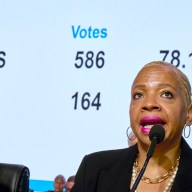As we all know job hunting is vastly different from career carving. Now, as graduates, we’re not simply trying to find a job that pays the rent, but hopefully a job that’s satisfying and utilizes our skills, but imagine if you couldn’t communicate those skills. A recent Statistics Canada finding shows a correlation between language barriers and landing degree targeted jobs.
Christine Chen came from China in 2001 at the age of 18. She studied at an international post-secondary high school and then went on to McMaster University where she graduated with an honours bachelor of commerce degree in the spring of 2006. Chen has decided to stay in Canada because she has become accustomed to the lifestyle.
“English has always been the greatest challenge. My English was good compared to my classmates in China. But after I came to Canada, I felt I was an outsider because of the language barrier,” says Chen. “Now, I can speak fluently. However, I still have problems understanding slang and unfamiliar topics.”
Chen’s challenge was faced head on when her current employer enrolled her into a program called Language Education for Accounting Professionals.
“When newcomers can’t communicate clearly in English, they can’t compete,” says Vincent Dong of L.E.A.P. “This often forces them to take survival jobs, instead of filling the positions for which they are trained and able. Many young immigrants have spent a great deal of time and money on professional education, but if they haven’t invested in language and cultural training, then they may be forced into the frustrating position of taking jobs outside their fields. To invest time, effort and money into training, and not be able to apply it to an appropriate career is a frustrating prospect.”
L.E.A.P. prepares accountants whose first language is not English to communicate in the Canadian accounting world. Focusing on business communication, Canadian office culture and pronunciation, the goal is to train students to walk, talk and communicate on par with their native-speaking colleagues. The programs range from six to 12 weeks in length, and costs $400 to $735 per semester.
Both society and individuals benefit when qualified professionals are matched with the careers for which they’ve trained, says Dong.
“It is not desirable for taxi-drivers to work as accountants, nor do we benefit when accountants drive taxis! Language barriers prevent companies from running at full efficiency.
“Professionals need to bring the appropriate skills to their careers, but in order for those skills to be utilized effectively, they must be able to communicate with their employers, colleagues and clients.”
Chen would like to work towards business consulting and acknowledges that English is essential when communicating with clients.
“You have to master the language well to precisely express your thoughts. It’s hard to show your abilities and skills in an interview. It’s even harder when you are speaking a foreign language.”
But this doesn’t discourage her from wanting to live here.
“Life in Canada is peaceful and simple. You can live well as long as you follow the rules and work hard.”
















